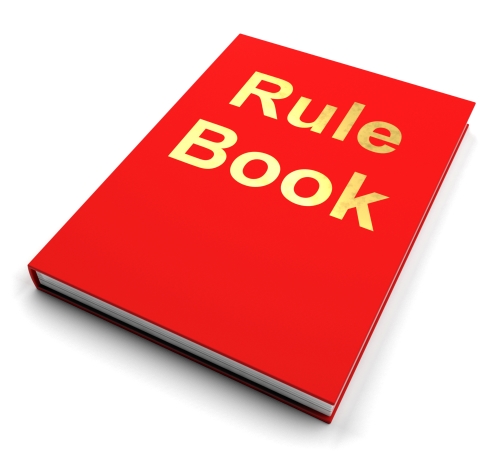“[I]nherent biases in generative AI models ‘have the potential to perpetuate or even exacerbate systemic issues related to race, gender, ethnicity, and other sensitive factors.’” – Jonathan Weiss Petition to Copyright Office
 Last week, the U.S. Copyright Office issued a notice of proposed rulemaking (NRPM) in the Federal Register as part of the triennial rulemaking process for exceptions to 17 U.S.C. § 1201’s prohibition against circumventing technological protection measures (TPMs) controlling digital access to copyrighted works.
Last week, the U.S. Copyright Office issued a notice of proposed rulemaking (NRPM) in the Federal Register as part of the triennial rulemaking process for exceptions to 17 U.S.C. § 1201’s prohibition against circumventing technological protection measures (TPMs) controlling digital access to copyrighted works.
This proceeding is the ninth triennial Section 1201 rulemaking since passage of the Digital Millennium Copyright Act (DMCA) in 1998, and it starts with the Copyright Office intending to recommend renewal of all but one existing exemption. The Office also announced that it has received petitions for seven classes of newly proposed exemptions for which the agency will initiate three rounds of public comments.
Circumventing Generative AI TPMs Would Allow Security Research into Inherent Bias
The Copyright Office issued a notice of inquiry in early June of this year seeking petitions for new proposed exemptions. By the deadline in late August, the Office had received petitions proposing nine new exemptions grouped by the Office into seven classes. One proposed new exemption that the Office recommended against in the past is the subject of a petition filed by joint educators to exempt circumvention of TPMs on DVDs, Blu-ray discs and digitally transmitted video for use in online learning platforms for upskilling and retraining, such as Khan Academy or LinkedIn Learning. The petition also names health education platform Osmosis.org, founded by Shiv Gaglani, one of the joint educators signing the petition. The Office’s NPRM notes that it has recommended against increasing this exemption to cover online learning platforms by for-profit entities.
Generative artificial intelligence (AI) platforms have been a subject of significant debate in copyright circles over the past year. A petition by Jonathan Weiss seeks a Section 1201 exemption to allow circumvention of access controls on generative AI platforms to enable security research into inherent biases programmed into AI platforms. If approved as proposed, the exemption would also cover the sharing of research findings, methodologies and techniques for exposing and addressing bias in AI models. Weiss’ petition notes that inherent biases in generative AI models “have the potential to perpetuate or even exacerbate systemic issues related to race, gender, ethnicity, and other sensitive factors.”
Section 1201 Petitions Seek Expansions to Repair Exemption
Open internet advocate Public Knowledge and global repair community iFixit filed a joint petition looking to expand consumer device exemptions to commercial industrial equipment. This exemption would allow for circumvention of TPMs on automated building management systems and industrial equipment such as soft serve ice cream machines and other industrial kitchen equipment. Specifically, Public Knowledge and iFixit note that Taylor ice cream machines manufactured for McDonald’s fast-food restaurants utilize TPMs that prevent repair professionals from fixing daily pasteurization cycle failures. The joint petition identifies service passwords and digital locks as two types of access controls for which the petition should allow circumvention.
The Organization for Transformative Works (OTW) filed a renewal petition for circumventing TPMs in motion pictures for the purpose of using excerpts in noncommercial videos made by fans of existing works. The Copyright Office is considering OTW’s petition as a proposal for a new exemption, noting that OTW’s petition asks the Office to simplify the exemption’s language to “excerpts for use in noncommercial videos” rather than the current language, which requires reasonable grounds for belief that circumvention is necessary to incorporate short portions of motion pictures into new works for criticism or commentary.
Petitions to expand exemptions for text and data mining on motion pictures and literary works were filed jointly by Author’s Alliance, Library Copyright Alliance and American Association of University Professors. Both exemptions are sought for the purpose of scholarly research and teaching and would expand the base of users who would have access through the exemption to those conducting independent text data mining research outside of a university affiliation. The Office is seeking feedback on whether the agency should consider this petition as a request to engage in new circumvention or as a modification to post-circumvention limitations.
The Copyright Office also received petitions for new exemptions for circumventing TPMs to access computer programs for preservation purposes and to obtain vehicle operational data. Three separate petitions were also filed to propose an exemption on computer programs for purposes of video game preservation. Petitioner Ken Austin notes that digital rights management (DRM) can become outdated and prevent gameplay if users cannot authenticate use through defunct servers. Other petitioners seek expansion of the current exemption to allow sharing of video game programs outside the physical premises of an eligible institution.
Image Source: Deposit Photos
Author: stuartmiles
Image ID: 12651824

![[IPWatchdog Logo]](https://ipwatchdog.com/wp-content/themes/IPWatchdog%20-%202023/assets/images/temp/logo-small@2x.png)

![[Advertisement]](https://ipwatchdog.com/wp-content/uploads/2024/04/UnitedLex-May-2-2024-sidebar-700x500-1.jpg)
![[Advertisement]](https://ipwatchdog.com/wp-content/uploads/2024/04/Patent-Litigation-Masters-2024-sidebar-700x500-1.jpg)

![[Advertisement]](https://ipwatchdog.com/wp-content/uploads/2021/12/WEBINAR-336-x-280-px.png)
![[Advertisement]](https://ipwatchdog.com/wp-content/uploads/2021/12/2021-Patent-Practice-on-Demand-recorded-Feb-2021-336-x-280.jpg)
![[Advertisement]](https://ipwatchdog.com/wp-content/uploads/2021/12/Ad-4-The-Invent-Patent-System™.png)






Join the Discussion
One comment so far.
Anon
October 23, 2023 05:55 pmGiven “equity,” I cannot see the basis for: “The Office’s NPRM notes that it has recommended against increasing this exemption to cover online learning platforms by for-profit entities.“